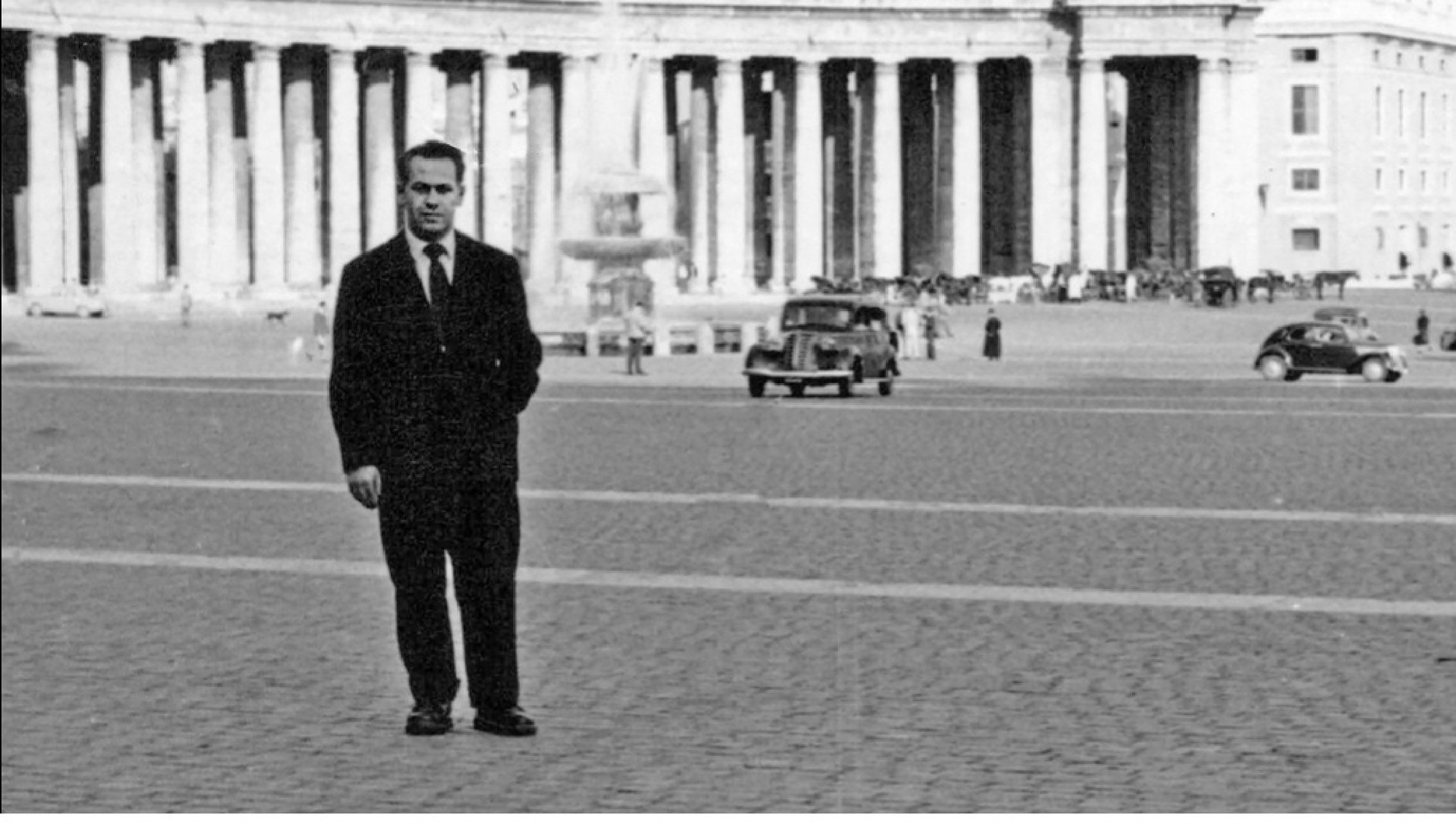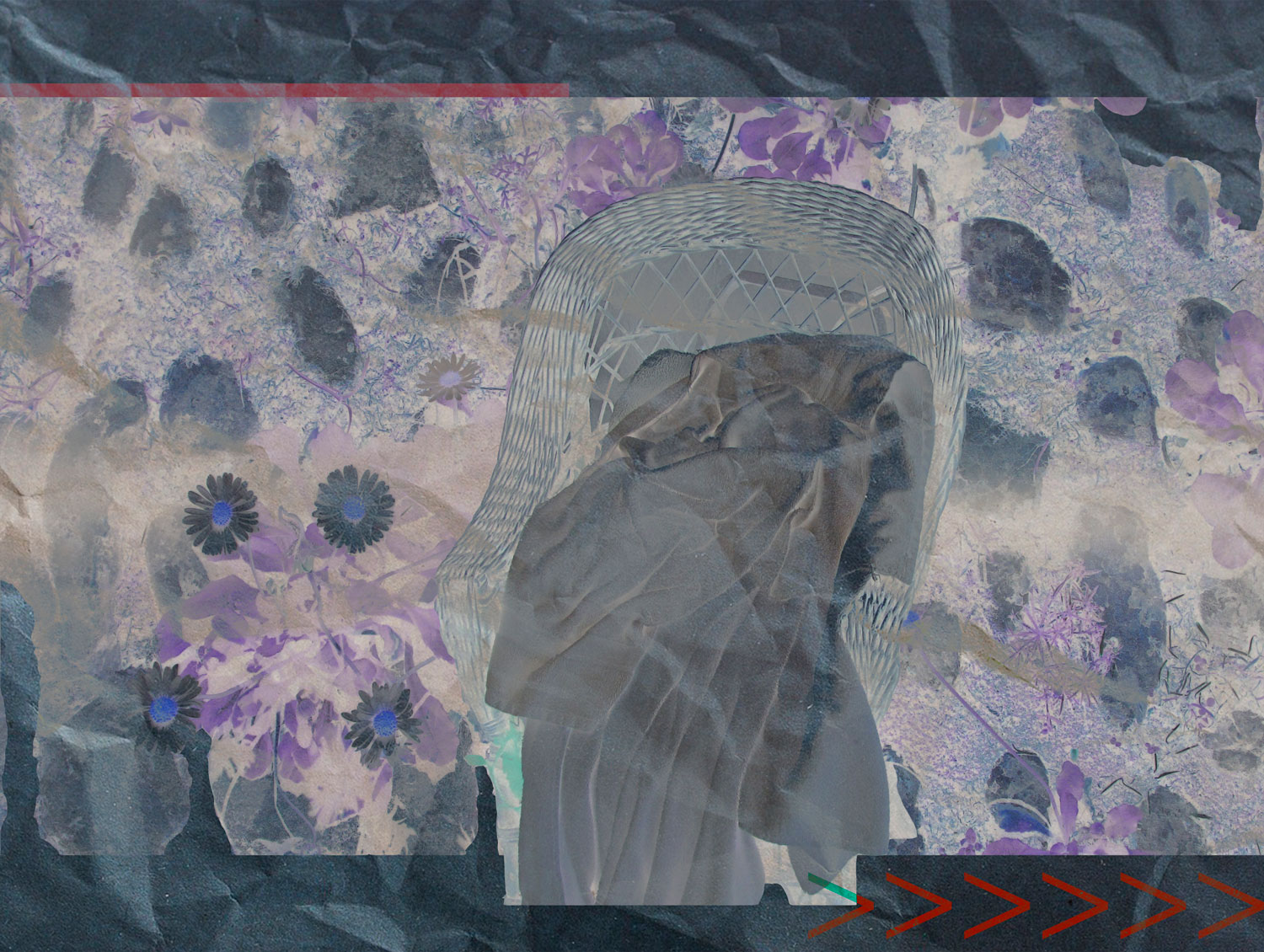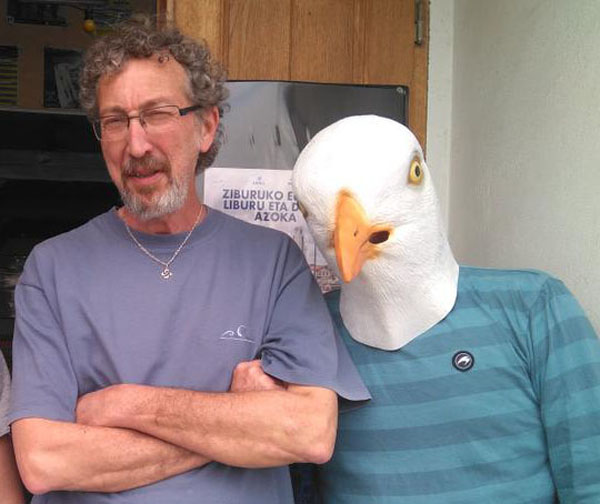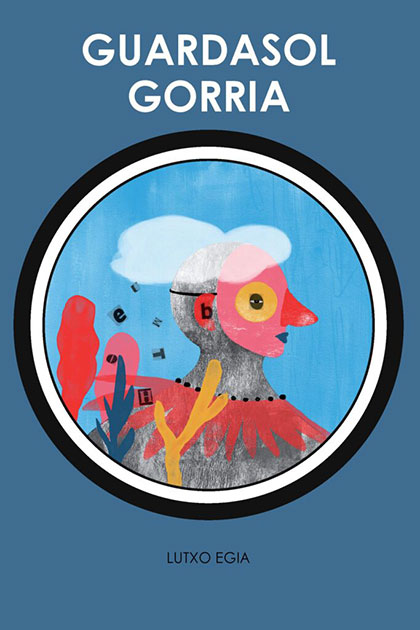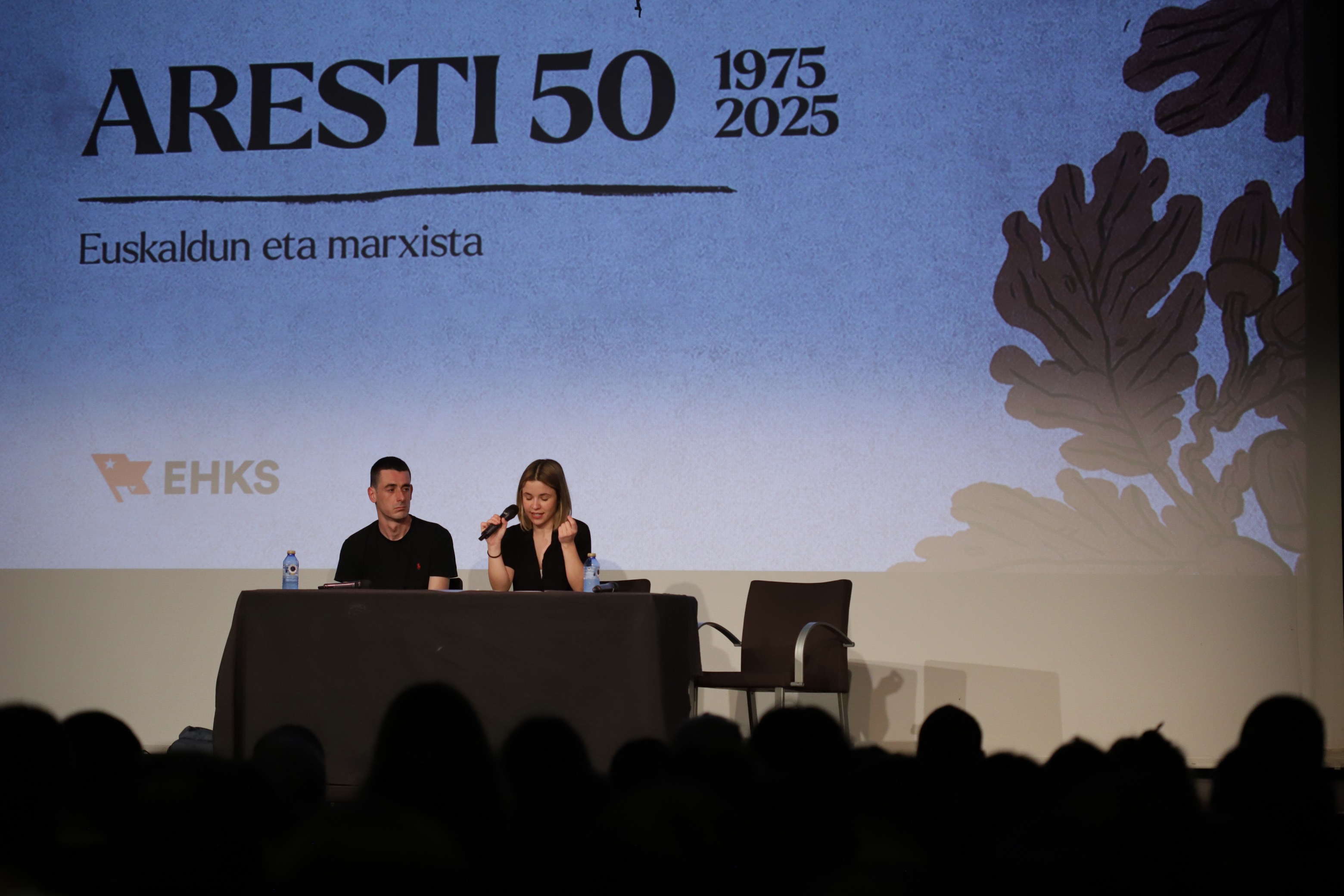"Readers want shops like this, but the book industry doesn't think about readers."
- “Sometimes we have a romantic idea tied to small bookstores, but the reality is not so romantic.” In the book industry, Ylenia Benito explains why small shops are the last soup. The Brontë library of Irun, which opened with the intention of opening, has had to close its doors on 29 August, and lovers of literature and tertulia have lost an important center. “It’s sad because all people end up reading the same things, leading us to it.”

Three years ago, you decided to open a bookstore. What space did you dream of?
I wanted a bookstore where you only sell books, and not a place where you sell books with others. I wanted it to have a space for readers and as a reader, what do I like? Enter the bookstore and touch the books calmly, look at the covers, read the first pages or the last ones! And of course, talk about books with those present. You can just do it in bookstores like this, because in the supermarket you'll also have books, but you'll never hear about books. At the same time, I looked for a nice, nice corner, to organize reading workshops, conferences, etc.
Literature isn't cost-effective, but you chose that path.
Sometimes we have a romantic idea tied to small bookstores, but the reality is not so romantic, and I knew it was going to be hard, but I felt strong. In addition, I was sure that there were many readers in Irun and in the region, and there are. The problem is that the book industry isn't based on readers, or those readers don't have enough force to change the system. In fact, industry tends to mimic big sites: big sites, like a big supermarket chain, have more resources than us to get books – every book is an investment in my case – but they also leave the books in better condition, allowing them to offer them to cheaper shoppers. After all, what publishers and distributors want is for there to be books in the big places, because more people pass through them, but no more readers. Readers are in bookstores, readers want shops like this, so I say the industry doesn't think about readers. The same goes for Amazon and others like this: If the Amazon book has a 5% discount, if you send it home for free and you are able to take advantage of it, think about the conditions in which they have left it. In France, new books can only be sold in bookstores in the first few weeks, not via the Internet. In this part of the border, some publishers have already started selling the book on the Internet a week before it was published in the establishments, selling the editorials themselves directly.
The bookstore is the last for the industry, everything is an obstacle and it is sad, because everyone ends up reading the same things, to that they address us: in the department stores we will only find certain books. People have come to me saying “I want a Julia Navarro style book,” because in those department stores they have Julia Navarro in sight, but within the historical novel there are many possibilities about Julia Navarro.
To this we add that in small shops the investment is continuous: the shelves have to be filled with books and that is money, a lot of money. People don't imagine how much money it is to fill every bookshelf.
"Independent bookstores have made me feel that I am not alone and that we fight together for strength and struggle with the big ones, because we are based on the same philosophy."
And in the end, not being able to financially support the project, the time has come to close the project. In the farewell, Ink Comics, Tobacco Days, Nakama, Ménades, Zubieta, Donostia bookstore, Katakrak, Hontza and Noski. “Caregivers,” he asked.
Those bookshops have made me feel that I am not alone and that we are fighting together for strength and struggle with the big ones, because we are based on the same philosophy. If the diffusion and socialization of this philosophy is the same way to confront the big ones. I see many parts of what I am in Brontë and in those small bookstores you can also see the personality of booksellers. We're all small, we have a lot of things -- but we're very different. It is precisely what makes us different that unites us. In contrast, Elkar is iguala, Fnac is iguala, Euskal Herria and Madrid.
Among other things, because an independent bookstore allows freedom in the choice of books, isn't it?
I've chosen all the books I've had here, for one reason or another. I don't like them all, but I put what I want in my bookstore, and although Patria is the best seller of the moment, it hasn't been so here. That also means that in a big trade you won't find anything new, just what everyone reads, and here you can find other options. It has happened to me that another reader, commenting on a book, has heard the conversation and taken it away. Or the Brontë sisters and Jane Austen have been recognized by my recommendations, because in this bookstore we love those authors. Everyone here wants to talk to the merchant, even when they have not asked me to recommend it, they have always asked me if I have read the book they have chosen and if I have liked it. That won't happen to you on Amazon, no matter what algorithms you use.
"I have put what I want in my bookstore and although for example 'Patria' is the best seller of the moment, here it has not been so"
The store was closed and all sad. But do citizens buy in small shops?
People propose to buy in the small shops of the village as if it were an effort, but it is not an effort, but the best option the citizen, comfortable and in the village has. Perhaps we have not succeeded in sending the message correctly. I announced that I would close the store and several people have told me: “I’ve wanted to go more than once, but I’ve always hurried from one to the other, I haven’t made the effort…” No, it's not an effort, it's an opportunity you haven't taken advantage of.
However, the end has been sweet.
I did not expect so much welcome in the final line; all the readers I knew have come to buy books, but also from the outside, from San Sebastian, from Pamplona, from Vitoria... and I am glad because thanks to that I will be able to close without debts, and at least I will not end up angry. I made fun of myself when I closed the doors, telling him that I just wanted to put in my boxes the wood on the shelves, not a book, and I almost got it.
"People propose to buy in the small shops of the village as if it were an effort, but it's not an effort, it's the best option the citizen has."
So you won't end up angry, but we've been angry with the institutions, including the Irun City Hall, because although it has allowed other initiatives it hasn't allowed Book Day, on the pretext of the pandemic. The institutions say that culture is very necessary, but then they do not have a real interest in culture.
I don't know, I've always found a wall ahead, go with a proposal and it's always hard and hard to get ahead, and it can't be that hard. There is money in the institutions, but to put money there are always difficulties; if you were interested, you would put money in. In addition, the cultural managers of the institutions, who do not, should make plans together with the body builders. The bookseller knows the needs of a bookstore, but if they do not take us into account to make cultural approaches, everything will be difficult for them, of course. The culturists cannot be a problem for the people who manage culture, their starting point should be to work with us and ask ourselves about our needs.
I have been told about the case of the City of Irun and it is related to that. Book Day was in July and I needed Book Day, not in autumn, but the municipal government decided that the Irun fair was to be held in autumn, supposedly. We are two independent bookstores in Irun – Ink Comics, focused on comics, and Brontë, general – we both wanted to celebrate the fair in July, but the City Hall has decided unilaterally to be held in autumn. That, for example, means for me a reduction in books on 23 April – because it is Book Day – 23 July – because the Book Day was once again proclaimed – and in that autumn fair, because the City of Irun then wants it. These discounts are always provided by the bookstore.
At the other end are the “Friends Brontë”.
Yes, Brontë Lagunak are all those who have cared for Brontë, those who have recommended the bookstore, those who have come and made proposals, the readers who have gone through here…
"Body builders cannot be a problem for those who manage culture, their starting point should be collaboration with us"
Irun loses his only general independent bookstore. It's a huge loss.
Yeah, and I'm worried about it myself, because I'm going to have to go outside of Irun to a bookstore that I like, and that makes me so sad. Perhaps, being the only one in the city has also been bad, because if we had been more independent bookstores, we would have made strength together in the city and maybe we would have created more movements among the citizens, in the institutions…
In any case, many towns and cities have run out of bookstore, and it is significant. We are becoming more and more accustomed to going to capital to enjoy culture and we should take care of the cultural agenda of our peoples and counties, so that not everything is concentrated in the big cities.
Book presentations, lectures, tertulias, reading club… have been common in Brontë. Do we need more spaces of this kind?
Yes, of course, and I will miss those opportunities for meeting. A friend says that people are made in the bookstore, because here we have had very rich debates, and sometimes the book has been nothing but the starting point of the debates.
What is the assessment of these three years?
Very positive, because I have not felt alone and I have been able to confirm that there are many readers. Organized activities have also given me great moments. The reading club has been full from the very beginning. It has been a joy to see Beñat Sarasola, a guest on a good Sunday morning, and a lot of people come. In addition, Mikel Iturria has approached to present the book of Javier Ortiz and has gathered a lot of people, including those from Donostia to Irun. It's a nice surprise, because we usually go from Irun to Donostia, not the other way around. At the historian's conference Mertxe Tranche on Jane Austen, viewers didn't enter the store! That makes an illusion, and you think, "We are also the place of culture." It's also nice to see that writers get closer and that this shop matters to them: Eider Rodriguez, Lucia Baskaran, Danele Sarriugarte… The last time it has been tough, because the coronavirus has struck me the final blow, but I will keep all those moments in my memory.
Do you recommend a book?
Of those I have read lately, I loved the house of the Father of Karmele Jaio. And the book I've recommended the most in these three years has been I painted the mustache to Stalin, from the German Erika Riemann, translated into Spanish. Highly recommended.
.jpg)
.jpg)
Now that everyone has become more Franciscan than the Pope, it’s worth remembering our unsurpassed classics. There was one in the 17th century, his grace was Arnaut Oienart. And since we can’t immerse ourselves in all his works, today we will praise O.ten youth in... [+]
Aurreko tertuliako galderari erantzuteko beste modu bat izan zitekeen, akaso modu inplizituago batean, bigarren solasaldi honetako izenburua. Figura literarioaz gaindi, pertsonaia zalantzan jartzeko, edo, kontrara, pertsonaiaren testuingurua ulertzeko saiakera bat. Santi... [+]
Martin Martina and the Mystery of the Golden Comb
by Amancay
Gaztelañaga Batu, 2024
-----------------------------------------------------
Amancay Castañaga launches the mystery of Martín Martina and the golden comb accompanied by the illustrations of Alain Martínez... [+]
The annoying noise of the works of the neighbors has awakened me even today. I put my head on the pillow, and I tried to sleep for another twenty minutes, but there was no one to shut that drill down. I woke up and looked at the table of duties that I did at the beginning of... [+]
Guardasol gorria
Lutxo Egia
Susa, 2024
Under the asphalt, the flower
Text: Monica Rodriguez
Illustrations: Rocío Araya translation
of: Itziar Ulcerati
A fin de cuentos, 2025
Ereserkiek, kanta-modalitate zehatz, eder eta arriskutsu horiek, komunitate bati zuzentzea izan ohi dute helburu. “Ene aberri eta sasoiko lagunok”, hasten da Sarrionandiaren poema ezaguna. Ereserki bat da, jakina: horra nori zuzentzen zaion tonu solemnean, handitxo... [+]








